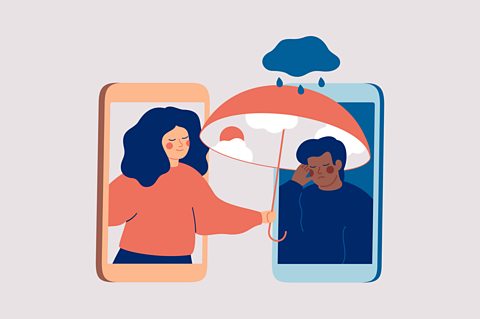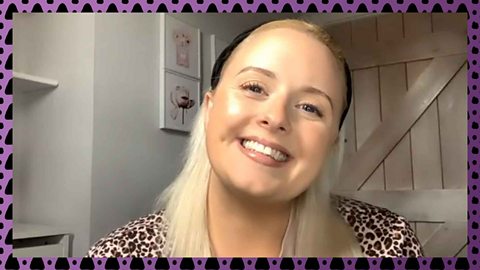
Have you ever had that feeling when your friend is going through a hard time and you can almost feel their pain? That’s one aspect of an amazing power we have: empathy.
At times like that, empathy might come on without you doing anything to make it happen, but did you know that empathy is actually also a skill you can learn and that it’s really useful in all kinds of ways? Empathy can help improve our relationship to ourselves, our friends and family and to the world at large. We spoke to Miranda McKearney, founder of Empathy Lab and organiser of , about what empathy is, why it’s important, and three ways you can hone it as a skill.

What is empathy?
According to psychologist Professor Robin Banerjee, empathy is “the ability to feel and understand other people’s emotions and perspectives.”Empathy works by combining three elements:
- feeling – where we resonate with someone else’s emotions
- thinking – where we use reason and imagination to work out how someone else is feeling
- acting – where we’re inspired to help others, having experienced what they’re feeling.
Empathy is a skill we can learn – and like a muscle, it grows the more we use it.
Why is empathy important?
Empathy helps you really feel and understand someone else’s point of view. So it’s a useful tool you can use across many areas of life, such as:
friendship – perhaps you notice someone at school who always eats lunch alone. You imagine what it would feel like to spend every lunchbreak alone and think it might feel lonely. Your empathy for that person might then help you to reach out and ask if they'd like to join you for lunch. Empathy is important for building strong relationships – trying to understand what others are going through makes us a great friend.
self care – showing empathy and being kind to ourselves is important too, as it can have a positive impact on our mental health. Practising mindfulness and meditation can help us to tune into our thoughts and feelings and show understanding and compassion to them as they arise.
work – empathy is important for work: many employers value people who can work well with others and empathy helps with this.
community – lots of change in the world has come about through empathy. Marcus Rashford’s food poverty campaign was, for example, based on empathy for hungry children.
How can we develop empathy?
Listening is a key part of empathy – tuning in so you really understand. Try to listen with your whole self, to concentrate 100% and to hear what’s behind the words. To check you’ve really understood and to show the other person you’re listening, it can be powerful to reflect back what someone’s telling you.
Read stories. When we read stories, a character’s emotions can feel really real. Tuning in to these emotions can help us learn about other lives, perspectives, and feelings. All without having to leave your chair!
Get curious. Replace judgement with curiosity: we can sometimes slip very easily into judging other people, especially people outside our normal “in-groups”. Try to notice when you’re judging someone without really knowing them, and replace judgement with curiosity about their lives and their feelings – especially if they’re very different from you, or if you disagree with them.
Like any new skill, it can take time to master developing your empathy skills, so don't go too fast - the main thing is to be authentic.

If you need support
You should always tell someone about the things you’re worried about. You can tell a friend, parent, guardian, teacher, or another trusted adult. If you're struggling with your mental health, going to your GP can be a good place to start to find help. Your GP can let you know what support is available to you, suggest different types of treatment and offer regular check-ups to see how you’re doing.
If you’re in need of in-the-moment support you can contact , where you can speak to a counsellor. Their lines are open 24 hours a day, 7 days a week.
There are more links to helpful organisations on 91Čȱ¬ Action Line.

How to be a good listener when someone opens up
Conversations about mental health aren't always easy, but hopefully this will help.

How to support a friend with their mental health
Katie Thistleton with advice from Young Minds on how to support a friend with their mental health.

Tips for coping with seeing loved ones struggling
Therapist Kemi Omijeh gives her advice for coping when your loved ones are going through a hard time.
